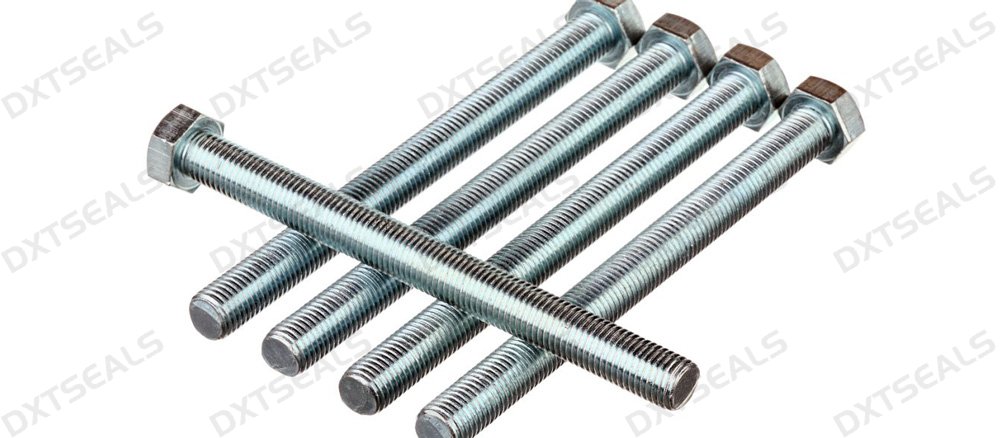Introduction
When it comes to high-strength bolts, Grade 8.8 bolts are commonly used in a variety of industrial applications. These bolts are known for their high tensile strength and reliability under extreme stress. However, one question often arises: What material is used for Grade 8.8 bolts? Is carbon steel the primary material, or are there other options?
In this article, we will dive into the composition of Grade 8.8 bolts, explain whether carbon steel is the material of choice, and explore the characteristics that make it suitable for heavy-duty applications.
1. What Does the Grade 8.8 Designation Mean?
The Grade 8.8 designation refers to a specific classification of bolts that indicates their tensile strength and yield strength. The "8" refers to the bolt’s tensile strength, which is 800 MPa (megapascals), while the ".8" represents the ratio of the yield strength to tensile strength, which is 80% of the tensile strength. This means that Grade 8.8 bolts are designed to handle a tensile load of 800 MPa and have a relatively high yield strength, making them ideal for demanding applications.
2. Material Used for Grade 8.8 Bolts: Is it Carbon Steel?
Yes, carbon steel is the most common material used for Grade 8.8 bolts, though not the only material available. Grade 8.8 bolts are typically made from medium carbon steel, which provides a good balance between strength, ductility, and hardness.
Carbon steel is a steel alloy that contains carbon as the primary alloying element. The amount of carbon in the steel affects its strength and hardness, which are crucial for the performance of the bolt. For Grade 8.8 bolts, carbon content typically ranges from 0.25% to 0.60% by weight, which results in a bolt with high strength but also some degree of flexibility to prevent brittle failure.
Key benefits of using carbon steel for Grade 8.8 bolts:
- High Strength: The carbon content in these bolts enhances their tensile strength, making them ideal for heavy-duty applications.
- Cost-Effective: Carbon steel is relatively affordable compared to other alloys like alloy steel, making Grade 8.8 bolts a cost-effective solution for many industries.
- Versatility: Carbon steel can be easily heat-treated to further improve its strength, making it suitable for a wide range of applications.
3. Other Materials for Grade 8.8 Bolts
Although carbon steel is the most common material for Grade 8.8 bolts, alloy steel can also be used for these bolts. Alloy steels, which may contain additional elements such as manganese, chromium, and vanadium, are sometimes used to improve the bolt’s performance under extreme conditions. Alloy steel can offer enhanced hardness, fatigue resistance, and corrosion resistance compared to carbon steel, making it ideal for more demanding environments like the automotive industry, construction, and heavy machinery.
Alloy Steel for Grade 8.8 Bolts:
- Higher strength and fatigue resistance: Useful for applications involving dynamic loading or vibration.
- Improved performance in extreme temperatures: Some alloy steels are specifically designed for high-temperature applications.
However, for most Grade 8.8 bolts, carbon steel remains the material of choice due to its good balance of strength, ease of manufacturing, and cost-effectiveness.
4. How Are Grade 8.8 Bolts Manufactured?
The manufacturing process for Grade 8.8 bolts involves several key steps:
- Steel Selection: Medium carbon steel or alloy steel is selected based on the required strength and application.
- Forging: The steel is heated and forged into the shape of a bolt, which helps to align the grain structure for greater strength.
- Heat Treatment: The bolts are heat-treated (quenched and tempered) to enhance their strength and hardness. This is a crucial step in achieving the Grade 8.8 specifications.
- Thread Rolling: Threads are rolled onto the bolt to provide a strong, durable thread surface.
- Quality Control: Each bolt is rigorously tested for strength, hardness, and other mechanical properties to ensure it meets the Grade 8.8 standards.
5. Applications of Grade 8.8 Bolts
Grade 8.8 bolts are widely used in various industries due to their high tensile strength and reliability. Common applications include:
- Construction: Used in structural connections, heavy machinery, and equipment assemblies.
- Automotive: Utilized in engine components, suspension systems, and chassis.
- Manufacturing: Found in conveyors, turbines, and other industrial machinery.
- Agriculture and Mining: Used for heavy-duty equipment, including tractors, excavators, and drills.
6. Conclusion
Grade 8.8 bolts are primarily made from carbon steel, which provides the ideal combination of strength, durability, and cost-effectiveness for many industrial applications. While carbon steel is the most common material for these bolts, alloy steels may also be used in applications where additional performance characteristics like enhanced hardness or fatigue resistance are needed.
The medium carbon steel used in Grade 8.8 bolts offers excellent tensile strength, corrosion resistance, and flexibility, making these bolts suitable for demanding environments such as construction, automotive, and manufacturing. Whether you need bolts for structural assemblies or heavy machinery, Grade 8.8 bolts provide a reliable and cost-effective solution.

